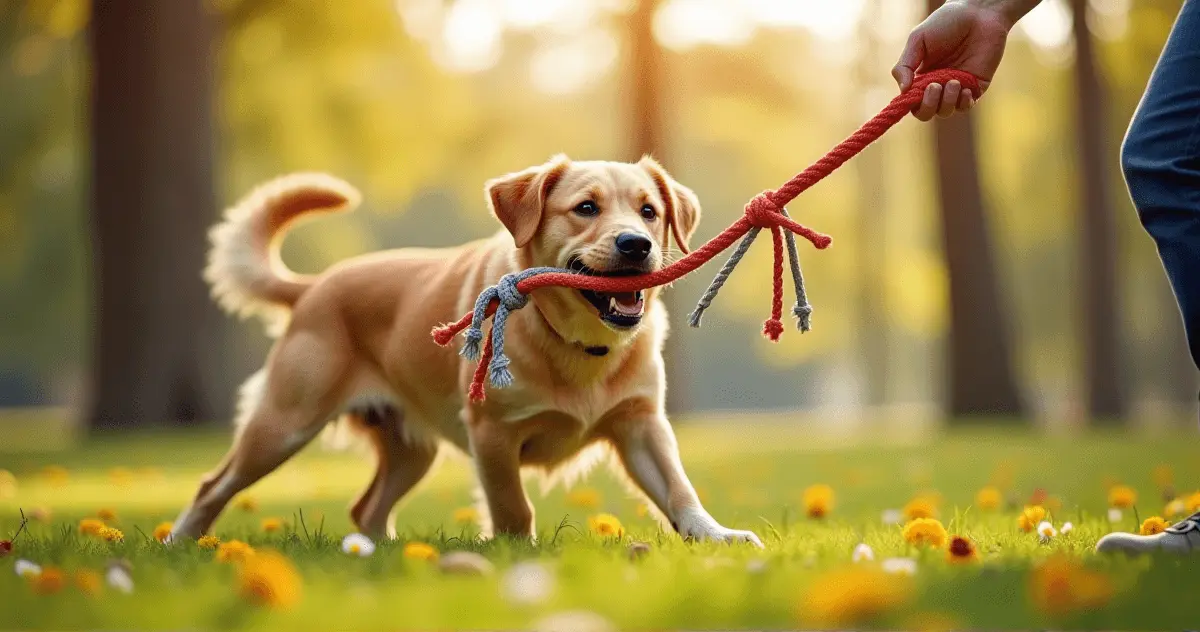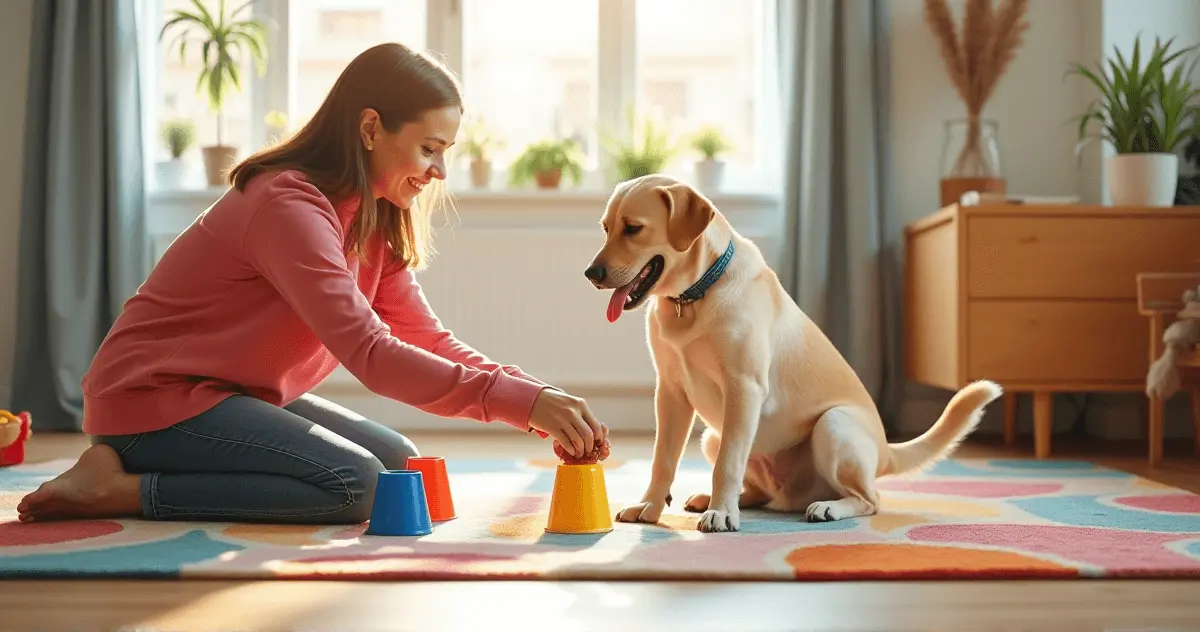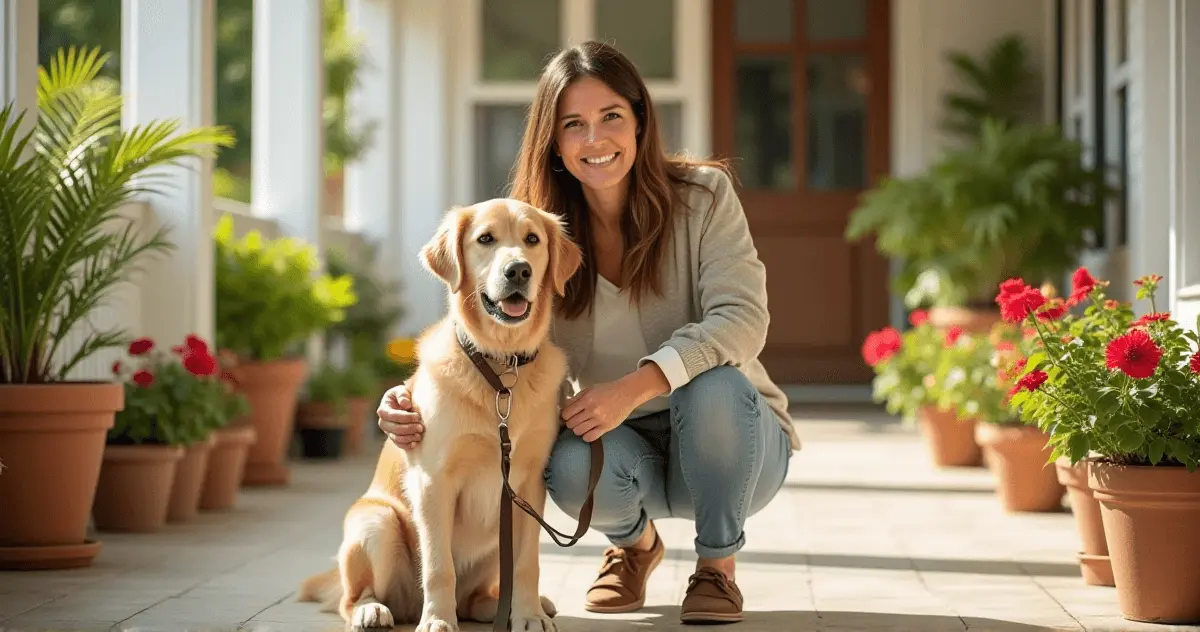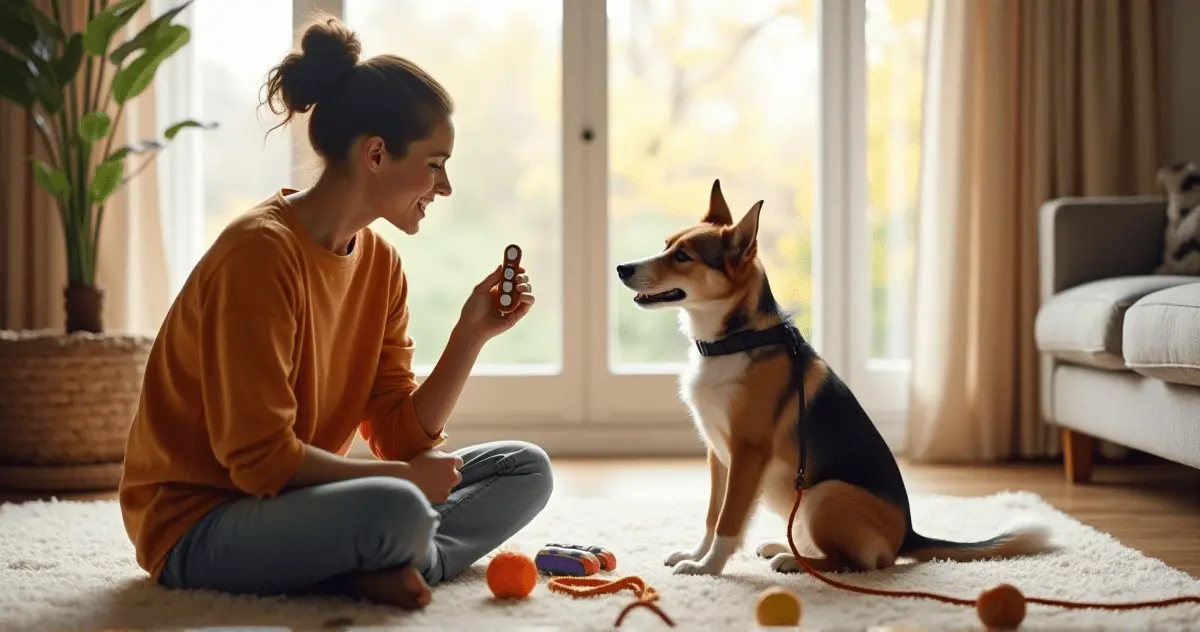Is It Too Late to Train Your Dog? Myths and Tips
Discover how to train older dogs effectively and bust common myths about canine learning.
Think your dog is too old to learn new tricks? Think again! Training older dogs is not only possible but rewarding.
Many dog owners mistakenly believe that older dogs can’t be trained, leaving behavioral issues unaddressed and bonds underdeveloped.
This post will dispel myths, share inspiring stories, and offer simple, actionable tips to help you train your senior dog.
- Training an older dog is entirely possible with the right approach.
- Tailored techniques can improve their behavior and overall well-being.
- Every training session strengthens the bond between you and your dog.
Discover interactive techniques to strengthen your bond and enhance obedience.
Learn more about brain training games

Can You Train an Older Dog? Absolutely!
🌱 Takeaways
- Training is possible at any age with the right techniques.
- Older dogs often learn faster due to their calmer demeanor.
- Patience and consistency are key to successful training.
📄 Older dogs can absolutely be trained. With the right techniques and a consistent approach, they can quickly pick up new skills and adapt to better behavior.
Many believe the adage 'you can’t teach an old dog new tricks,' but this simply isn’t true. Older dogs are fully capable of learning new skills, and their calm nature can often make them easier to train than energetic puppies. Patience and consistency are vital, along with understanding their specific needs and health considerations.
- Start with basic commands and build on their current knowledge.
- Use positive reinforcement techniques like treats, verbal praise, or play.
- Adjust your approach based on the dog's age and energy level.

When Is It Too Late to Train a Dog? (Hint: Never)
🌱 Takeaways
- It's never too late to train a dog with the right approach.
- Behavioral changes are achievable at any age with consistent training.
- Training enhances the quality of life for both you and your dog.
📄 No matter the age of your dog, training is always possible. With patience and the right methods, even senior dogs can adapt and thrive.
Some dog owners hesitate to train older dogs, believing the effort might not be worth it. However, research and countless success stories prove otherwise. Mature dogs are eager to please and can adapt their behavior even after years of habits. The key lies in setting realistic goals and approaching training with consistency.
- Focus on small, incremental improvements.
- Celebrate progress, no matter how minor.
- Understand that some behaviors may take more time to change.
Boost their intelligence and obedience today!
Start training smarter

How to Train an Older Dog: Practical Tips
🌱 Takeaways
- Older dogs benefit from tailored, patient training approaches.
- Training sessions should focus on building trust and consistency.
- Positive reinforcement is the most effective training method.
📄 Training older dogs requires patience, trust, and the use of positive reinforcement. Tailored techniques make the process smoother and more effective.
Training an older dog can be deeply rewarding. The first step is building trust—older dogs may have established habits that require gentle redirection. Using positive reinforcement, such as treats, verbal praise, or play, is critical. Tailoring sessions to your dog’s energy levels and health needs ensures they remain comfortable and engaged.
- Start with short sessions (5-10 minutes) to avoid fatigue.
- Focus on basic commands like sit, stay, and come.
- Incorporate age-appropriate rewards, such as soft treats or verbal encouragement.
- Maintain a calm, positive tone to build trust and confidence.
The key to success lies in consistency. Establish a routine, use clear commands, and celebrate progress to keep your dog motivated. Remember, training is a journey, not a race, and every small victory strengthens your bond.

Training Without Treats: Does It Work?
🌱 Takeaways
- Treats are not the only motivator for successful training.
- Verbal praise, physical affection, and play are great alternatives.
- Consistency and creativity ensure effective training without treats.
📄 Training without treats is possible by using other motivators like praise, affection, and play. This approach can build a stronger bond with your dog.
While treats are a common training tool, they’re not the only option. Some dogs respond better to verbal praise, physical affection, or engaging activities. These alternatives can be particularly useful for dogs with dietary restrictions or those who aren’t food motivated.
- Use enthusiastic verbal affirmations like 'Good job!'
- Incorporate their favorite toys or games as rewards.
- Offer gentle physical affection, such as petting or belly rubs.
The key is understanding what excites your dog and leveraging it as a reward. Combining creativity with consistency ensures successful training without relying solely on treats.
🍎 Key Takeaways
- Training is possible and beneficial for dogs of all ages.
- Positive reinforcement and patience are key to successful training.
- Tailored methods enhance the training experience and strengthen the human-dog bond.
Training is a lifelong journey that benefits dogs and their owners at every stage. With patience, consistency, and the right techniques, even older dogs can learn new skills and improve their behavior, leading to a stronger and more fulfilling relationship.
Want to better understand how your dog perceives and interacts with the world? Explore our post on The Dogs World: How They Perceive and Behave.
Unlock their full potential with expert-guided brain training.
Take the first step now!
Join the brain training program
-
American Kennel Club (AKC)
The Importance of Training Your Senior DogThe AKC emphasizes that training older dogs keeps them physically fit and mentally engaged, enhancing their overall well-being. Regular training sessions provide enrichment and strengthen the human-animal bond.
-
Whole Dog Journal
Training An Older DogThis article discusses the mental decline in aging dogs and suggests that continued learning and training can help maintain cognitive function. It highlights the importance of realistic expectations and adapting training methods to suit senior dogs.
-
Companion Animal Psychology
Dogs' Attention Declines with Age - But Training HelpsResearch indicates that while dogs' attention may decline with age, lifelong training can mitigate this effect. Dogs with higher levels of training maintain better attention and responsiveness in their senior years.
-
Dances with Dogs
It's Never Too Late: Training Older DogsThis article debunks myths about training older dogs, providing success stories like that of Charlie, a 14-year-old terrier mix who learned new behaviors through force-free training, reducing anxiety and improving behavior.
-
Senior Tail Waggers
Training Older Dogs - Tips & Advice That WorkThe article emphasizes patience and consistency when training older dogs, noting that mature dogs can be quick learners despite long-standing habits. It encourages owners to persist, as older dogs are eager to please and capable of learning new behaviors.




